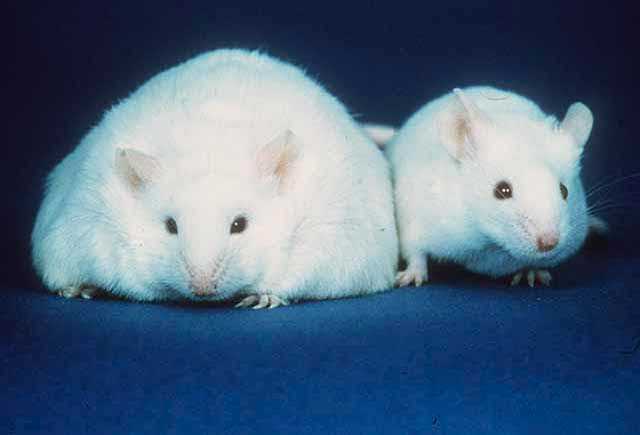
Researchers at Georgetown University Medical Center have found that a mutation in a particular gene can lead to obesity.
Mouse experiments suggested the body’s message to “stop eating” was blocked if the animals had the mutation.
The study, published in Nature Medicine, said the brain’s response to appetite hormones was being disrupted.
US researchers hope their findings could lead to new ways to control weight.

Many genes have been linked to obesity; one of them – brain-derived neurotrophic factor gene (BDNF) – has been shown to play a role in putting on weight in animal and some human studies.
However, scientists at the Georgetown University Medical Center said the explanation for this link was unknown.
In studies on mice which had been genetically modified to have the mutation, the mice consumed up to 80% more food than normal.
After a meal, hormones such as insulin and leptin should tell the brain that the body is full and should stop eating. The researchers showed that in the mutated mice the message was not being passed on from the hormones in the blood to the correct part of the brain.
One of the researchers Prof. Baoji Xu said: “If there is a problem with the BDNF gene, neurons can’t talk to each other, and the leptin and insulin signals are ineffective, and appetite is not modified.”
Prof. Baoji Xu said the discovery “may open up novel strategies to help the brain control body weight” such as finding a “drug that can stimulate BDNF expression”.